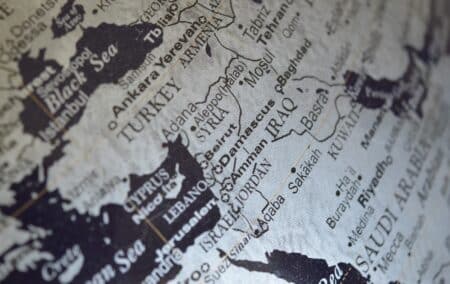The Organisation of the Islamic Conference (OIC) has condemned Israel for its actions in the current round of violence in Gaza – although shifting geopolitical realities have complicated the approach of its various members.
In a statement, the 57-member body, representing (predominantly) Muslim-majority states, condemned Israel for ‘systematic crimes against the Palestinian people across the entire Occupied Palestinian Territory’. This is in line with its long-held position on the conflict.
However, the recent normalisation of relations between Israel and a number of its member states, coupled with concerns about the influence of Hamas, led to recriminations within the organisation.
Iran’s foreign minister stated: ‘The massacre of Palestinian children today follows the purported normalisation. This criminal and genocidal regime has once again proven that friendly gestures only aggravate its atrocities.’
Turkey’s foreign minister said: “There are a few who have lost their moral compass and voiced support for Israel. If there are half-hearted statements within our own family, how could we criticise others? Who will take our words seriously?’ (Turkey maintains relations with Israel.)
Sami al Arian, director of the Center for Islam and Global Affairs at Istanbul Sabahattin Zaim University, commented in a media interview that the OIC had taken a weak position on the situation in Israel and Palestine. ‘We see today that there is an attempt by the Israeli government and by the settlers to take over the Al Aqsa mosque. We have witnessed this throughout the entire month of Ramadan. And OIC has not responded at all,’ he said.
However, Hussein Ibish of the Arab Gulf States Institute in Washington argues that the leaders of most of the Gulf States see Hamas’ actions as ‘cynical, dangerous, unnecessarily provocative and endangering Israelis and Palestinians in Gaza alike’. For this reason, they are less inclined to take a firm position.
[Image: ErikaWittlieb from Pixabay]

